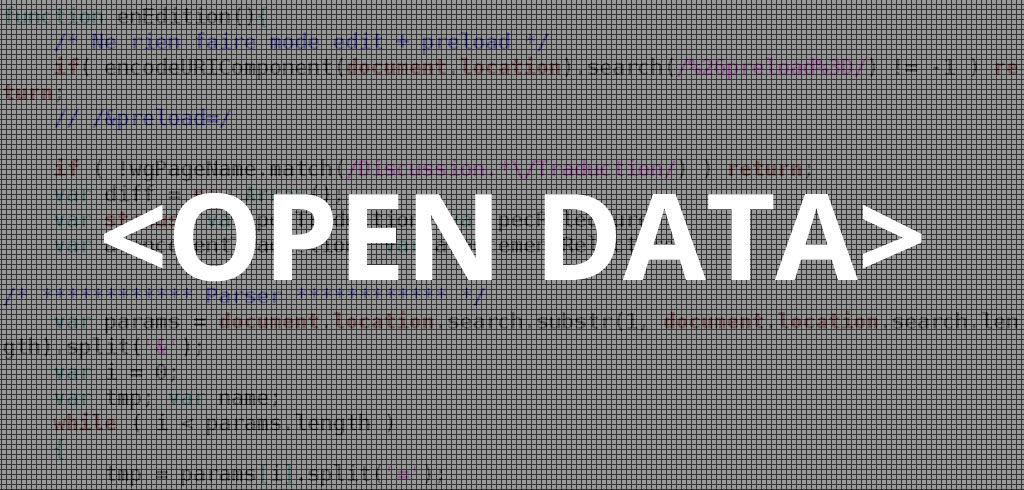
Open Data photo by Descrier, CC BY 2.0.
“To increase integration and efficiency of an electronic-based system of governance in order to achieve clean, effective, transparent and accountable governance as well as to improve quality and reliability of public services.”
This is the main reason for the issuance of the new Presidential Regulation Number 95 of 2018 on Sistem Pemerintahan Berbasis Elektronik or e-Government (e-Gov). The regulation details governance of e-Gov in Indonesia such as the national master plan, e-Gov architectures, roadmaps, and infrastructures that will ensure effective and efficient sharing and use of government data and information for various public services.
The recently published Open Data Barometer “Leaders Edition” report looks at 30 governments, – including Indonesia – that made concrete commitments to champion open data. They will do this either by adopting the Open Data Charter, or, as members of the G20, by signing up to the G20 Anti-Corruption Open Data Principles. During the past five years of the Barometer, Indonesia has seen slow but steady improvement supported by strong regulatory frameworks concerning public access to information. Yet, the need to improve data policies, strategies, and data management practices, as well as to strengthen data protection framework and implementation, remain. Open data as practices remain siloed and have barely reached areas outside a few main cities such as Jakarta, Banda Aceh, Bandung, and Bojonegoro. Their impact are limited, with efforts focused mostly on improving government efficiency and accountability, while social inclusion and increased citizen participation are overlooked, ignored, or not prioritised. So how can the new regulation on e-Gov affect the open data movement in Indonesia? Why is it critical? Here are two reasons we’ve identified:
Indonesia needs to invest in better technical infrastructures
The Open Data Barometer “Leaders Edition” report found that:
“Promises on infrastructure and community building remain undelivered: Governments that historically have ranked highly in the Barometer have been promising to invest in national data infrastructure and community building around open data for years. But these conversations continue year after year with very little actual investment.”
Indonesia itself needs to invest more in its technical infrastructure to ensure data interoperability, and the availability of high-quality, machine-readable, open government data. These data will benefit – and in the big picture, should be accessible and usable for – both internal government structures and agencies, as well as for the citizens. To achieve this, our research shows that robust technological infrastructures – such as open data platforms, apps, databases, network infrastructure – for supporting the organisation, curation, storage, and creation of datasets that are accessible to government agencies and to the public is the main prerequisite.
However, improving data infrastructures goes beyond the technical aspect. While technical infrastructures can be bettered through dedicated budget and efforts, there are other human and institution-driven elements that heavily influence and dictate the success of open data initiatives.
Aside from technical infrastructures, practical guidelines and capacity building are also crucial in building an open data culture
The latest edition of the Barometer also suggests that simply building technical infrastructure is not enough to ensure availability of high-quality, open government data. There is also a need to establish guidelines, technical standards, capacity building programmes to support data management practices and, more importantly, to develop the culture of openness within government leading to organisational transformation in the long run. In fact, the Barometer pointed out that these are key elements that most governments are failing to address, as they require more resources and changes in already established processes, regulations, and institutions.
The Indonesian government can take advantage and use the transition into e-Gov to embed open data principles as part of its standard operating procedures and guidelines. The government can also use this opportunity to provide and increase capacity building programmes on data, from data management to proactive publication and use, as well as to bring together existing open data efforts from local agencies under one national practice and platform. At this point, this can be achieved by finding and strengthening the synergies between the implementation of e-Gov policy and the upcoming Presidential Regulation on One Data Indonesia.
As the report suggests:
“…the biggest action governments can take to speed up progress is to start investing the significant resources needed to build the policies, practices and infrastructure to drive transformation.”
Technical infrastructure and good data governance policies and procedures, including capacity building programmes are invaluable in the management of open government data in Indonesia. They are necessary to encourage the efficient use of human, financial and technical resources and accountability for the use of those resources.
At the Jakarta Lab, we work with our partners to design, test, and implement sustainable open data initiatives that lead to tangible impact—often starting from the bottom-up. For example, in Jakarta, we’ve helped write, design and publish the One Data Modules aimed to provide solid guidelines for open data implementation and use, that will be used by public officials in Indonesia. In Yogyakarta, we’ve strengthened local civil society organisations in including data in their work and advocacies, particularly those tackling fiscal transparency and gender-inclusive activities. In Banda Aceh, we’ve worked with both civil society and local government agencies to institutionalise open data practices for improved public service delivery.
To learn more about our work, visit labs.webfoundation.org and follow us on Twitter @ODLabJkt to stay updated on our latest activities!
Leave a Reply